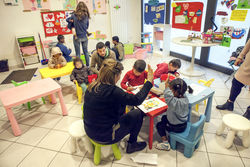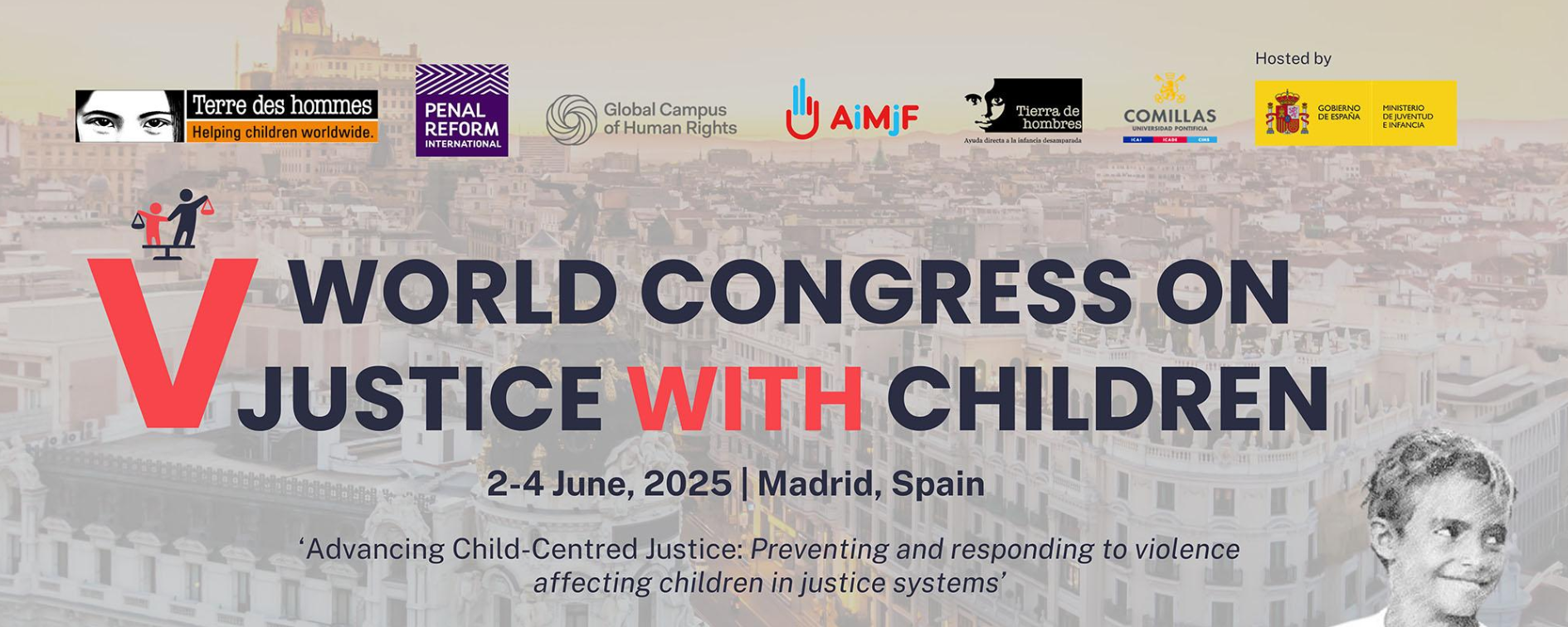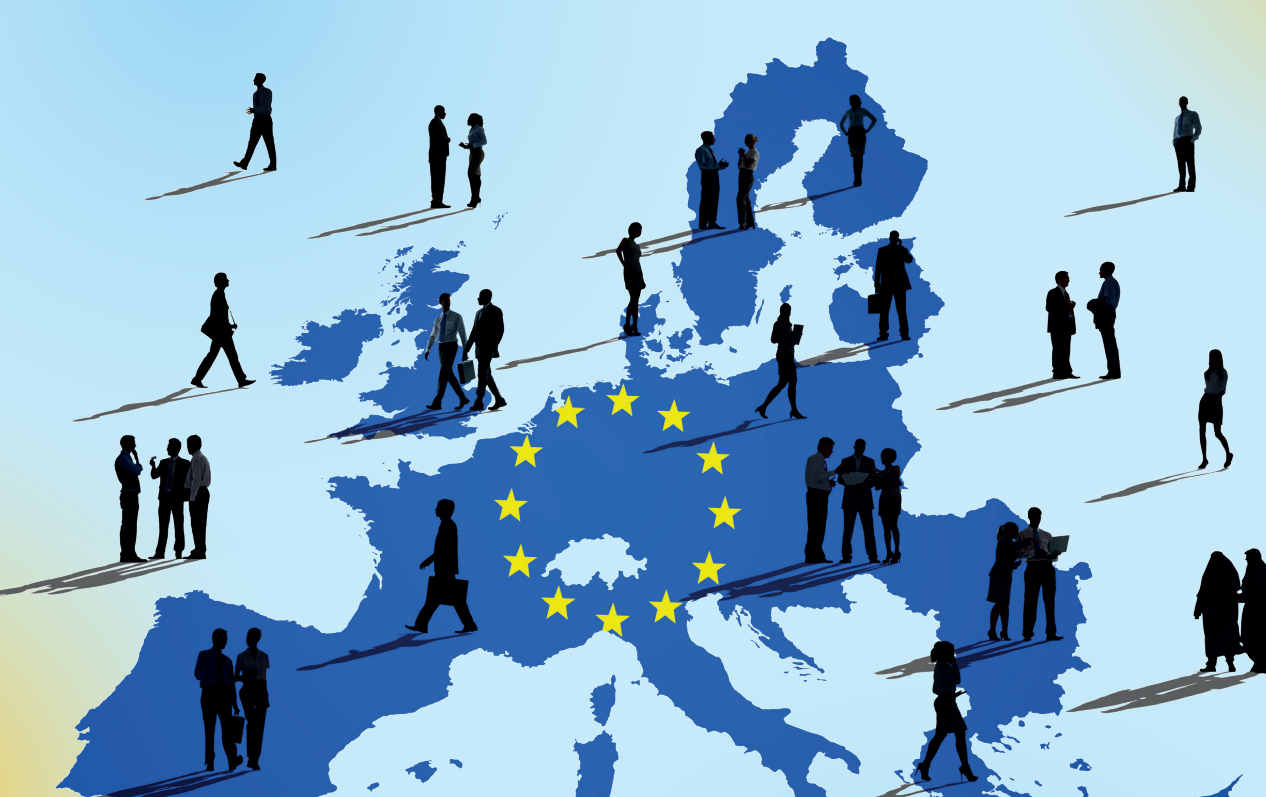How to equip migrant and refugee children to determine the course of their lives?
Eurochild and its member SOS Children’s Villages co-delivered a workshop at Lost in Migration conference, introducing promising practices published late last year.
On 11-12 April, Missing Children Europe, the Maltese President’s Foundation for the Well-being of Society, MEPs and theEuropean Parliament Intergroup on the Rights of the Child and the EPIM Foundation, convened the second edition of the Lost in Migration conference on the protection of children in migration. Eurochild and its member SOS Children’s Villages delivered a workshop together introducing promising practices published late last year.
Let Children be Children is a recently launched report by Eurochild and SOS Children’s Villages which documents 16 case studies bringing lessons from the field on the protection and integration of refugee and migrant children in Europe. Building on this wealth of experiences, SOS Children’s Villages and Eurochild run a workshop on strengthening the resilience of children and young people with the aim of discussing how to better equip young migrants to cope with difficulties and unlock their potential so that they can determine the course of their lives and find a place in society.
When children and young people who have fled their countries are not supported in their transition to adulthood and inclusion in society, the consequences are often disastrous. They include dropping out of school, unemployment, poverty, homelessness, isolation, becoming victim of abuse, losing trust in others and hope in the future, and entering a cycle of marginalisation. These consequences are devastating for the individuals affected, a waste of talent for society as a whole and a breeding ground for discrimination and negative attitudes towards migrants.
Two of the inspiring practices illustrated in the Let Children be Children publication were presented at the workshop to start off the discussion with participants.
- Centre for asylum-seeking families with children in Italy, Fondazione L’Albero della Vita (FADV), Daria Crimella
A centre in Milan run by FADV provides assistance to families with children seeking asylum in Italy and those eligible for relocation to other EU Member States. It goes beyond accommodation and material support, aiming to provide a foundation for long-term social inclusion. Families living in the centre receive a range of specialised services including psychosocial and pedagogical support, education and healthcare, legal aid and employment counselling.
The project aims to respond to the individual needs of the families and to equip them with the tools to become self-sufficient by ensuring their participation in the preparation of family plans.
FADV operates in strict collaboration with the contractors – the Municipality of Milan and the Prefecture of Milan – and works with CSOs, local school and social services for implementing specific project activities. The project also implements activities to raise awareness and engage volunteers from the local community.
- Mentoring programme for unaccompanied children in private living arrangements, SOS Children’s Villages Sweden, Cecilia Bergling Nauclér
The professional mentoring programme, implemented by SOS Children’s Villages Sweden in the Gothenburg district of Angered in partnership with district authorities, works with unaccompanied and separated children who have residence status and live with relatives or family friends in independent housing arrangements.
The services offered by the mentors include activities to build links with local communities and to cope with the challenges of everyday life, participation in social and cultural events and support in the area of education and work. SOS Children’s Villages works with a strong network of partners to provide education and employment opportunities.
The programme complements the services provided by state and local authorities and helps children and young people to integrate into Swedish society. It works with young people up to the age of 23 as they transition to adulthood.
Following the two discussion starters, participants reflected on the main challenges and identified key elements that can make a difference and proposed solutions to overcome remaining obstacles in supporting children and young people to be better equipped to unlock their potential and find their place in society.
Key challenges
- Funding / sustainability. Many initiatives are run on funding coming from private donors or on a short-term / project basis while social inclusion is a long-term process that requires long-term investment
- Lack of (legal) information, with children and families unaware of their rights and the opportunities offered by the community. When people have no access to trusted sources of information, they are more prone to rely on information provided by people with other interests, i.e. smugglers
- Difficulties to ensure high quality standards in (emergency) services
- Language barriers / isolation. In particular, integration is difficult for children living in neighbourhood with very low presence of local population and few opportunities of interaction
- Mental health needs
- Difficulties to work with undocumented people or those who have short-term residence permits as lack of certainty about the future negatively impacts integration efforts
- Duty to report people to migration authorities hampers opportunities to build relationships of trust with children and families (including families of unaccompanied children who have stayed in the country of origin but who could keep playing a protective role in their guidance to their children)
- Hostile political landscape – when your work is based on cooperation with municipalities, how to work with those not interested in social inclusion and / or promoting anti-migration sentiment?
Solutions / strengths
- It’s all about TRUST. How to build trust? Take the time, tell them always the truth; be humble: tell them what you can do and what you can’t do; keep your promises; interact knowing that we are all humans, we have a lot in common; treat people with dignity, not like victims
- Promote an individualised approach to meet children’s individual needs and to enable children to build relationships of trust
- Manage expectations, also among the people who want to help so that they don’t give up when unrealistic expectations are not realised. In particular, the expectation that “refugees” are one way or another is unrealistic. Like any group of people, they are diverse, and there will be people with whom a particular person finds easier or more difficult to connect
- Support children in their transition to adulthood
- Promote integrated systems & services and multi-sectoral partnership
- Empower children & families
- Key role of local communities & partnership with local authorities
- Share good practice & learning opportunities
- Explore different ways for people to tell their stories in a way that they own them
- Promote resilience skills and research on the topic of the potential of people who have gone through distressful experiences
Recommendations from the discussions will be commonly agreed upon by the participants of the Lost in Migration conference and shared with the EU Institutions and Member States.




